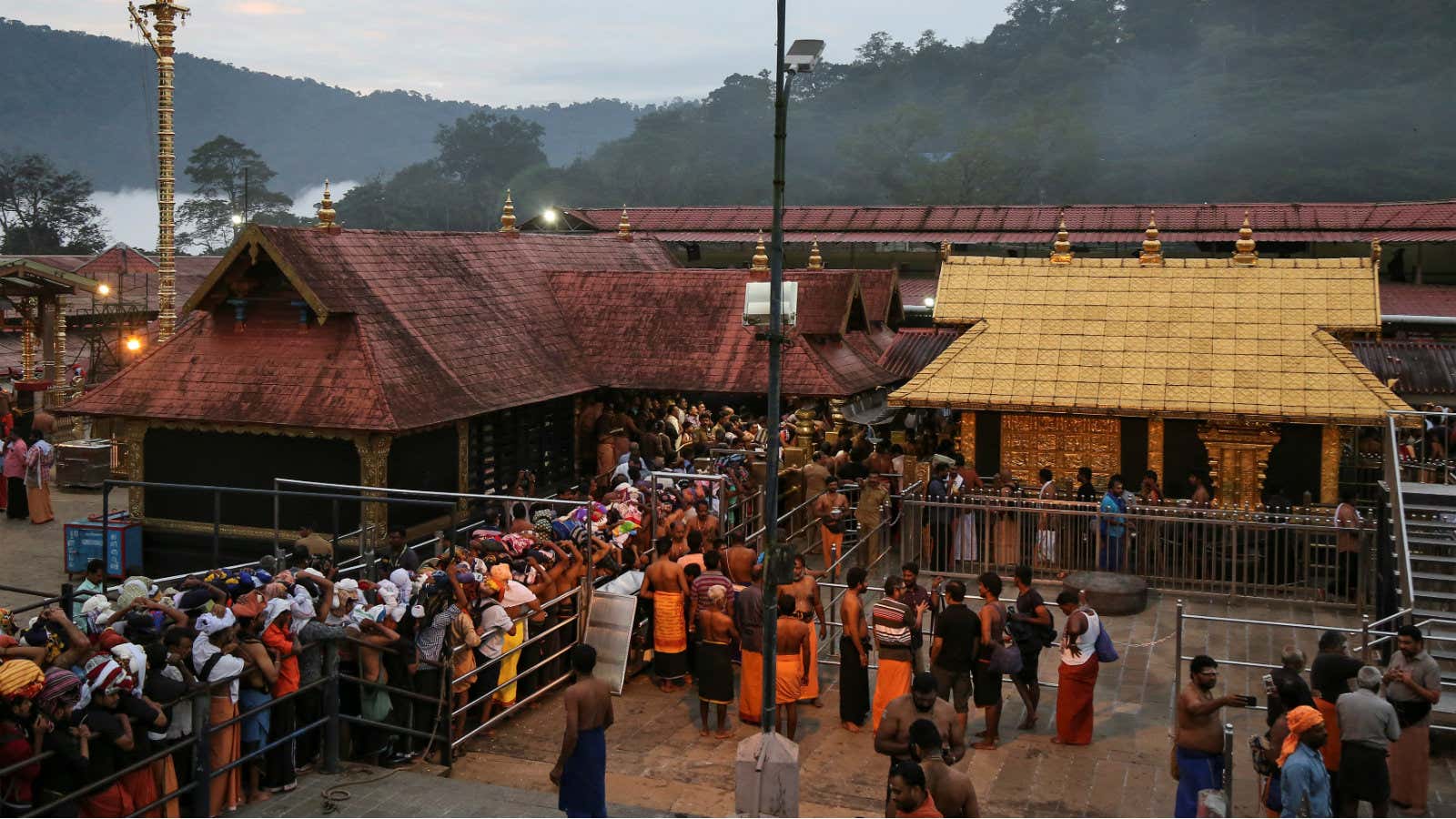Two persons in India made history today (Jan. 02) by entering a temple long forbidden for women of menstruating age.
Their entry came around three months after India’s supreme court overturned the ban in place at Kerala’s Sabarimala Ayyappa temple in southern India.
Kerala chief minister Pinarayi Vijayan confirmed that Bindu and Kanakadurga, who are in their 40s, made the climb up to the popular pilgrimage site located in the Western Ghats. The women, natives of northern Kerala, were reportedly accompanied by policemen and arrived at the inner sanctum of the temple at 3.45am.
The temple’s reigning deity is the Hindu god Ayyappa, believed to be celibate. For decades, this was used as the justification to bar women between the ages of 10 and 50 from worshiping at the temple. But on Sept. 28, 2017, the supreme court scrapped the ban, calling it a violation of women’s right to practice their religion. That landmark decision came over a decade after a public interest litigation was first filed against the ban, and it was celebrated as a sign of the supreme court charging ahead to protect the rights of women and minorities in India.
Since then, however, Kerala has faced repeated outbreaks of protests and conflict between opposing sides. Though over a dozen women have attempted to enter the temple, accompanied by police protection, all have failed until now.
The entry comes just a day after 5 million women from various fields and across the political spectrum marked the new year by lining up in a 620km-long human chain that spanned every single district of Kerala. The “women’s wall” was backed by the left-wing state government as a statement of its commitment to promote gender equality and women’s rights.
